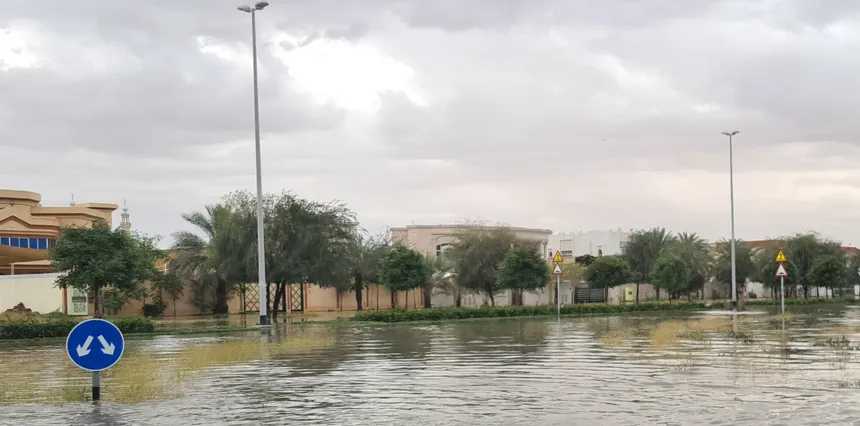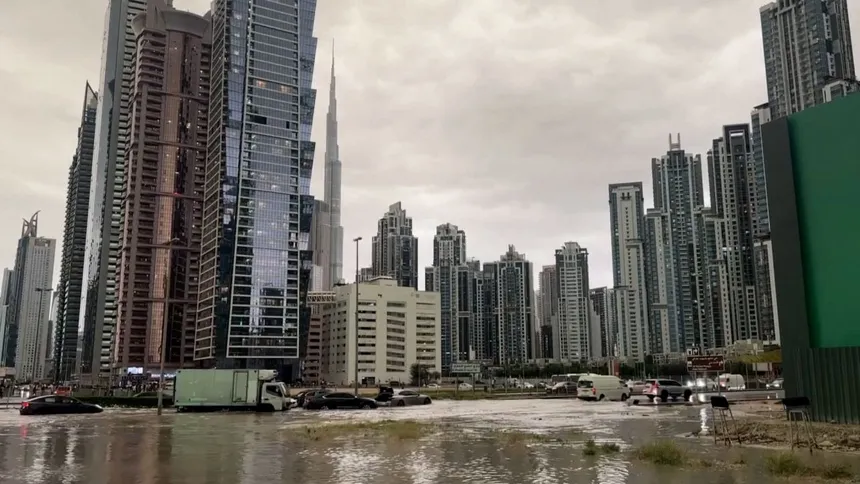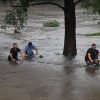The United Arab Emirates has experienced its largest rainfall in 75 years, with highways and malls flooded, schools closed, and flights disrupted at one of the world’s busiest airports. The unusual weather has wreaked havoc, with at least one person killed and many more affected. In Ras Al Khaimah, a 70-year-old man was swept away in his car, police said.
Footage from Dubai International Airport shows passenger jets moving through deep water, spraying water in their wake, while photos capture city streets turned to rivers, with cars sitting abandoned in floodwaters. One man described the situation at the airport as “absolute carnage”. With thousands of passengers stranded, many were forced to sleep in the metro station or airport.
Despite the widespread impact, authorities have remained tight-lipped on the extent of the damage, with only a few officials making brief statements. The rains began on Monday night and continued into Tuesday, with more than 142mm (5.59in) of rain falling on Dubai alone, a full year and a half’s worth of normal rainfall in the desert city.
Heavy rain also fell in Bahrain, Qatar, Saudi Arabia, and Oman, where rescuers found the body of a girl in Saham, bringing the death toll in the country to 19 since Sunday. The occurrence of such heavy rainfall is unusual in the UAE, with an average annual rainfall of just 94.7mm (3.73in) at Dubai International Airport, which is the world’s busiest for international travel.

The airport’s CEO, Paul Griffiths, described the situation as “incredibly challenging”, saying it was “uncharted territory” for the airport. Some media reports suggested the rains may have been made worse by cloud seeding, a common practice in the UAE to encourage precipitation by releasing salt particles into the air. However, the National Center of Meteorology denied any seeding operations took place during the event.
Professor Maarten Ambaum, an atmospheric physics expert, explained that cloud seeding is generally used for clouds that don’t normally produce rain, and would not produce significant changes in severe weather events. Ambaum warned that the world should expect more extreme weather events due to human-caused climate breakdown, driving more frequent and more deadly disasters.
As the city begins to recover from the unusual weather event, schools will remain closed until next week and the government has extended remote working for its employees. The weather system had already caused floods across Bahrain and left 19 people dead in Oman, including 10 schoolchildren swept away in a vehicle.

